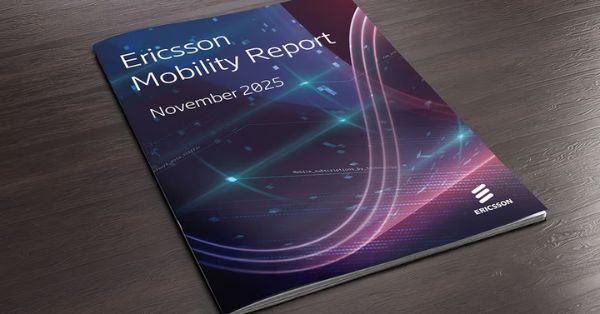Introduction
Within the dynamic realm of technology, the convergence of DevOps and Cloud Computing has materialized as a paradigm shifter, fundamentally transforming the processes of software development and information technology operations. Nevertheless, this symbiosis presents significant obstacles, among which data privacy emerges as the most crucial consideration. With the growing trend of organizations migrating their operations to the cloud and implementing DevOps practices, it is critical to acknowledge the complexities associated with protecting sensitive information in this ever-changing setting.
As organizations increasingly rely on cloud services and adopt DevOps methodologies, the need to safeguard sensitive data becomes even more pressing. The dynamic nature of both cloud computing and DevOps introduces new challenges in ensuring data privacy, such as managing access controls, encryption, and monitoring for potential vulnerabilities. Therefore, it is imperative for businesses to develop robust security strategies that address these complexities and prioritize the protection of confidential information in this evolving landscape.
The Intersection of Cloud Computing and DevOps: A Game-Changer
Cloud computing offers exceptional scalability, flexibility, and cost-effectiveness, rendering it an appealing option for enterprises seeking to optimize their processes. Simultaneously, DevOps practices facilitate improved collaboration and efficacy between the operations and development teams, resulting in expedited development cycles and uninterrupted delivery.
Although this partnership fosters innovation, it also raises significant concerns about data protection. The rapid-fire nature of DevOps and the cloud’s shared responsibility model may expose vulnerabilities that compromise the confidentiality and integrity of sensitive data.
To address these concerns, organizations must implement robust security measures and establish clear protocols for data protection. This includes regular vulnerability assessments, encryption of sensitive data, and strict access controls to ensure that only authorized personnel can access and modify critical information. Additionally, continuous monitoring and auditing of the DevOps environment can help identify and mitigate any potential security risks in real time. By prioritizing data security alongside innovation, enterprises can fully leverage the benefits of DevOps while safeguarding their sensitive information.
Key Challenges in Data Privacy
Below are some of the key challenges in data privacy:
Data Residency and Compliance: Data may traverse diverse geographic locations while residing in a cloud environment. The task of guaranteeing adherence to data domicile regulations becomes intricate, necessitating a rigorous strategy toward data governance and localization. Organizations must ensure that they have a clear understanding of data residency requirements and implement robust controls to maintain compliance. This includes implementing encryption measures, data access controls, and regular audits to ensure that data remains within the designated geographic boundaries and meets all regulatory requirements. Additionally, organizations should establish strong partnerships with cloud service providers who prioritize data privacy and offer transparent compliance reporting to address these challenges effectively.
Encryption Across the Pipeline: To reduce the risk of unauthorized access, data in transit, at rest, and during processing must be encrypted. It is essential to incorporate comprehensive encryption mechanisms throughout the DevOps pipeline in order to protect data throughout its lifecycle. This includes implementing encryption protocols for data transmission between different stages of the pipeline, encrypting data stored in databases or file systems, and ensuring encryption during data processing. By incorporating encryption across the pipeline, organizations can ensure that sensitive data remains secure and protected from potential threats or breaches. Additionally, regular audits and assessments should be conducted to verify the effectiveness of encryption measures and identify any vulnerabilities that need to be addressed.
Identity and Access Control Management: Identity management and the implementation of stringent access controls are crucial for preventing unauthorized access. Multiple parties are frequently involved in DevOps processes; thus, a centralized identity and access management strategy is essential for preserving control. This strategy should include strong authentication methods, such as multi-factor authentication, and role-based access controls to ensure that only authorized individuals have access to sensitive data and systems. Regular reviews of user access privileges should also be conducted to remove any unnecessary or outdated permissions, reducing the risk of unauthorized access.
Securing integrations and APIs: DevOps is highly interdependent on APIs and integrations. The protection of these endpoints is critical in order to avert data intrusions and unauthorized entry points into the system. Implementing strong encryption protocols and regularly updating them can help secure integrations and APIs. Additionally, implementing robust monitoring and logging systems can help detect any suspicious activity or potential breaches in real-time, allowing for immediate action to be taken to prevent unauthorized access.
Best Practices for Ensuring Data Privacy in Cloud-Enabled DevOps Environments
Comprehensive Encryption Strategies: Ensure the security of data throughout its entire lifecycle by implementing end-to-end encryption. This encompasses the utilization of secure communication protocols to encrypt data in transit, the implementation of encryption during processing, and the encryption of stored data. Additionally, organizations should regularly update their encryption algorithms and keys to stay ahead of emerging threats. It is also important to establish strong access controls and authentication mechanisms to ensure that only authorized individuals can access sensitive data in the cloud-enabled DevOps environment.
Automated Compliance Checks: To ensure that data management practices adhere to industry-specific and regional regulations, integrate automated compliance checks into the CI/CD pipeline. By adopting a proactive approach, the likelihood of compliance breaches is significantly diminished. Additionally, organizations should conduct regular audits and vulnerability assessments to identify any potential weaknesses in their cloud-enabled DevOps environment. This will help them proactively address any vulnerabilities and ensure continuous compliance with regulations. Implementing a robust incident response plan is also crucial to effectively responding to any security incidents and minimizing the impact on sensitive data.
RBAC: Role-based access control to enforce the principle of least privilege, implement RBAC. By allocating roles and permissions in accordance with job duties, organizations can restrict access to sensitive information to only those who need it. RBAC helps prevent unauthorized access and reduces the risk of insider threats. Additionally, regularly reviewing and updating access privileges can further enhance the security of the cloud-enabled DevOps environment.
Continuous Monitoring and Auditing: Implement robust surveillance and auditing tools in order to continuously monitor and audit data access patterns, user activities, and system modifications. Ongoing surveillance enables the expeditious identification of threats and facilitates effective reactions to potential security breaches. By regularly monitoring and auditing data access patterns, user activities, and system modifications, organizations can quickly identify any potential security threats and respond effectively to prevent breaches. This proactive approach ensures that any unauthorized access or suspicious behavior is promptly detected and addressed, maintaining the overall security of the cloud-enabled DevOps environment.
Education and Training: DevOps teams to cultivate a culture of security consciousness. Consistent training sessions regarding emergent threats and optimal data privacy practices enable team members to take preventative measures in addressing security concerns. This ongoing education and training, combined with proactive measures such as security audits, creates a strong foundation for maintaining a secure DevOps environment.
Conclusion
In light of the increasing adoption of Cloud-Enabled DevOps, it is imperative that organizations place data privacy as a top priority. Incorporating a comprehensive approach that includes access controls, encryption, compliance checks, and continuous monitoring is imperative for establishing a secure DevOps environment within the cloud infrastructure. By implementing these recommended strategies, businesses can effectively manage the convergence of Cloud Computing and DevOps, ensuring the protection of confidential information and maintaining the confidence of their stakeholders in an ever more digital environment.
Data privacy is crucial in Cloud-Enabled DevOps as it helps prevent unauthorized access and potential data breaches. Additionally, organizations should regularly update their security measures and stay informed about the latest threats to ensure a robust and secure DevOps environment in the cloud. By staying proactive and vigilant, businesses can mitigate risks and build trust with their stakeholders in an increasingly interconnected world.








































